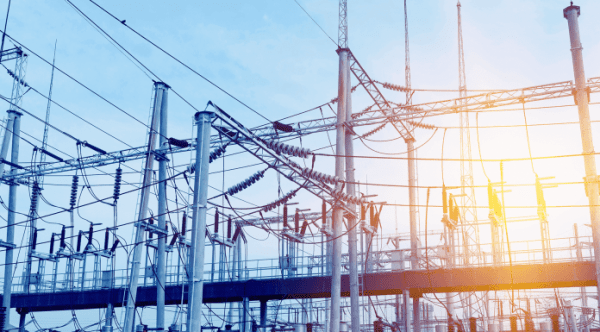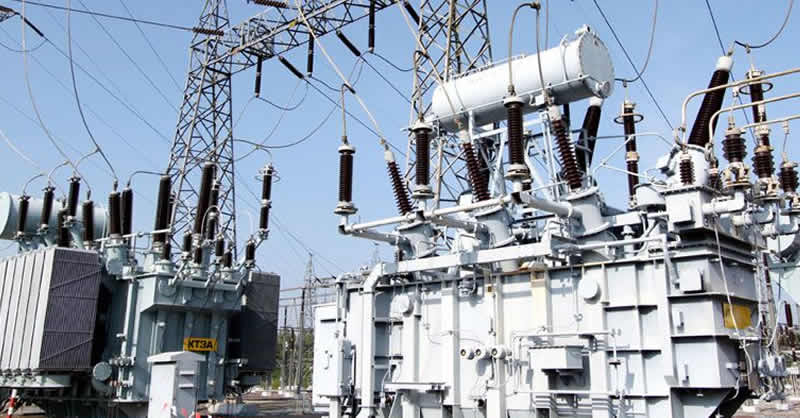The Electricity Company of Ghana (ECG) has announced that it has successfully traced and retrieved all its previously missing containers at the Tema Port, marking a significant breakthrough in resolving the logistics crisis that has plagued the company’s operations.
Speaking before the Energy Committee of Parliament, Acting Managing Director of ECG, Ing. Julius Kpekpena, disclosed that over 1,000 containers had already been moved from the port since the retrieval exercise began.
“So far, we have moved over a thousand containers.
“I’m happy to say that we traced all of the containers and we started moving them from the port.”
Ing. Julius Kpekpena, Acting Managing Director of ECG
Mr. Kpekpena told the Committee that the recovery effort was part of a broader plan to strengthen ECG’s operational capacity.
Efforts to Stabilise Power Supply

Beyond the container retrieval, the ECG boss assured Parliament that the company had stepped up measures to improve the stability of electricity supply.
“We have managed to curb outages.
“We are not saying that we have eliminated outages, but we’ve worked to curb outages, and we are continuing to put in measures to make sure that we don’t go back to what we came to meet.”
Ing. Julius Kpekpena, Acting Managing Director of ECG
Mr. Kpekpena acknowledged that challenges remained but stressed that the company’s current trajectory was focused on ensuring reliability, improving customer service, and building a more resilient power distribution system.
The issue of missing containers first came to light earlier this year when an investigative report revealed that more than 1,300 containers of ECG equipment were unaccounted for at the Tema Port.
The Chairman of the committee that investigated the matter, Prof. Innocent Senyo Acquah, disclosed that while ECG reported having 2,491 uncleared containers containing cables and other essential materials, an independent audit at the port found only 1,134, leaving 1,347 containers untraceable.
Prof. Acquah presented the findings to the Minister of Energy and Green Transition, John Abdulai Jinapor, noting the discrepancies raised serious questions about ECG’s logistics and procurement management.
Funding and Procurement Concerns

The committee’s investigations also revealed lapses in ECG’s financial and procurement processes.
Before 2022, ECG maintained a dedicated fund that received weekly allocations to clear containers at the port. However, the practice was discontinued, with the ECG board citing lack of funds as the reason for halting payments.
During this period, ECG awarded contracts to two private companies to clear the containers. Investigators found that one of these companies had been pre-financed by ECG, while the other lacked the necessary licence to undertake such a contract, raising procurement breach concerns.
The committee also discovered that ECG’s Procurement Directorate had been merged with the Housing and Estate Unit, an unusual arrangement that diluted accountability.
Furthermore, background checks revealed that the company’s Director of Procurement had no prior experience in procurement and was not a member of any professional procurement body.

The recovery of these assets could not have come at a more crucial time, as Ghana faces growing electricity demand amid ongoing concerns about system losses and distribution inefficiencies.
Parliament’s Energy Committee has, however, urged ECG to maintain transparency in its operations and ensure that lessons are learned from the lapses uncovered by the investigation.
Prof. Acquah insisted that procurement reforms and stricter accountability measures must follow the container retrieval if ECG is to regain public confidence.
For his part, Mr. Kpekpena reassured both Parliament and the Ghanaian public that ECG was determined to correct the structural weaknesses identified by the investigation.
The Energy Committee has pledged to continue monitoring ECG’s performance, particularly in the areas of procurement transparency, logistics management, and power delivery.
The hope for consumers is that the recovery of equipment and improved supply measures will soon translate into fewer outages, better service delivery, and an overall improvement in the reliability of Ghana’s power sector.
READ ALSO: Market Cheers as Ghana’s Treasury Auction Breaks Four-Week Drought with 15.8% Oversubscription























